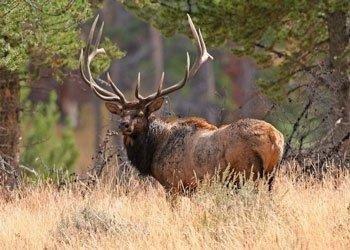Plans that determine the total number of deer and elk in Utah are up for revision.
The change Division of Wildlife Resources biologists are recommending to the deer plan would allow them to use the most up-to-date habitat information available to decide whether deer population objectives should be raised, lowered or remain the same.
In the past, deer plans for all five regions in Utah were revised once every five years.
Anis Aoude, big game coordinator for the DWR, says the DWR’s range trend crew does extensive on-the-ground habitat analysis in one of the five regions every summer. Then the next summer, they travel to the next region.
“If deer objectives need to change,” Aoude says, “it makes sense to make the changes as soon as possible after receiving the latest habitat information for a region. Instead of revising all five regions once every five years, we’re recommending that one region be revised each year, using habitat information the range crew gathered the summer before.”
The biggest change biologists are recommending involves Utah’s elk herds. “We feel the state can handle a few more elk than we’re currently managing for,” Aoude says.
Biologists are recommending that the total number of elk in Utah be allowed to grow from a current objective of 68,825 elk to 70,965 elk. If approved, the 2,140 additional elk would be scattered across the following units: Chalk Creek, Kamas, Avintaquin, West Desert, Fillmore and Fish Lake.
The only area where the total number of elk would decrease is the Paunsaugunt unit in southern Utah. Biologists are recommending that the elk herd on the unit be reduced by 35 animals.
You can see all of theВ biologists’ recommendations online. Scroll down the page to the ‘May RAC and June Board meetings’ heading to find the recommendations.
Learn more, share your ideas
After you’veВ reviewed the ideas, you can let your Regional Advisory Council members know your thoughts by attending your upcoming RAC meeting or by sending an email to them.
RAC chairs will share the input they receive with members of the Utah Wildlife Board. The board will meet in Salt Lake City on June 6 to approve revisions to the management plans.
Dates, times and locations for the RAC meetings are as follows:
В· Southern Region
May 8, 7 p.m.
Richfield High School
510 W 100 S, Richfield
В· Southeastern Region
May 9, 6:30 p.m.
John Wesley Powell Museum
1765 E Main ST, Green River
В· Northeastern Region
May 10, 6:30 p.m.
Bingham Entrepreneurship and Energy Research Center
320 N Aggie Blvd (2000 W), Vernal
В· Central Region
May 15, 6:30 p.m.
Springville Public Library Meeting Room
45 S Main Street, Springville
В· Northern Region
May 16, 6 p.m.
Brigham City Community Center
24 N 300 W, Brigham City
You can also provide your comments to your RAC via email. Email addresses for your RAC members areВ available online.
The group each RAC member represents (sportsman, non-consumptive, etc.) is listed under each person’s email address. You should direct your email to the people on the RAC who represent your interest.
В
В


